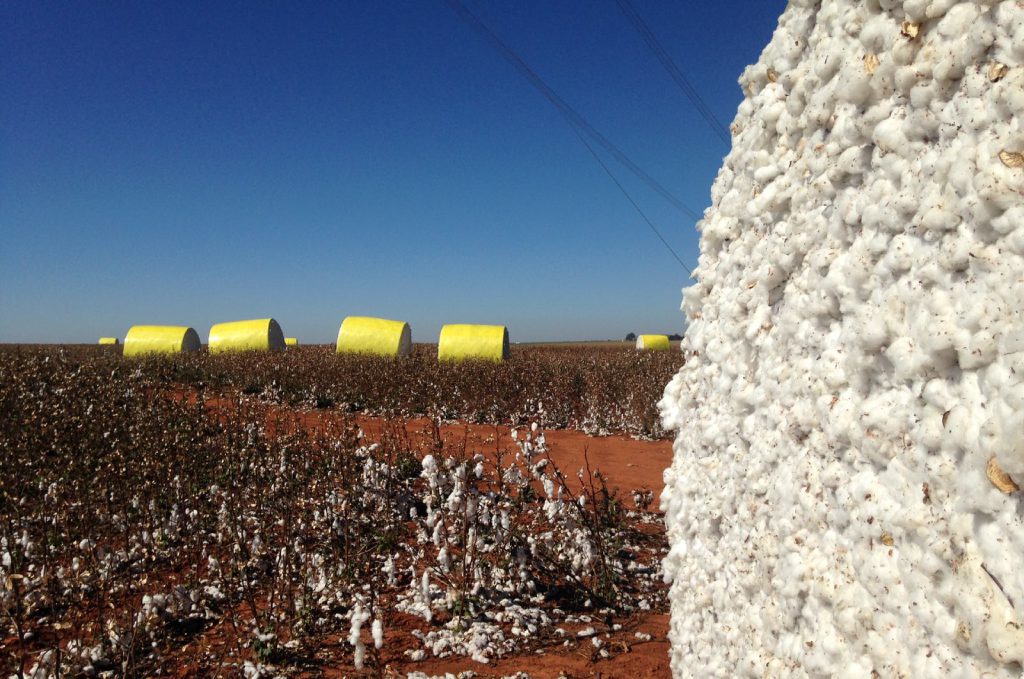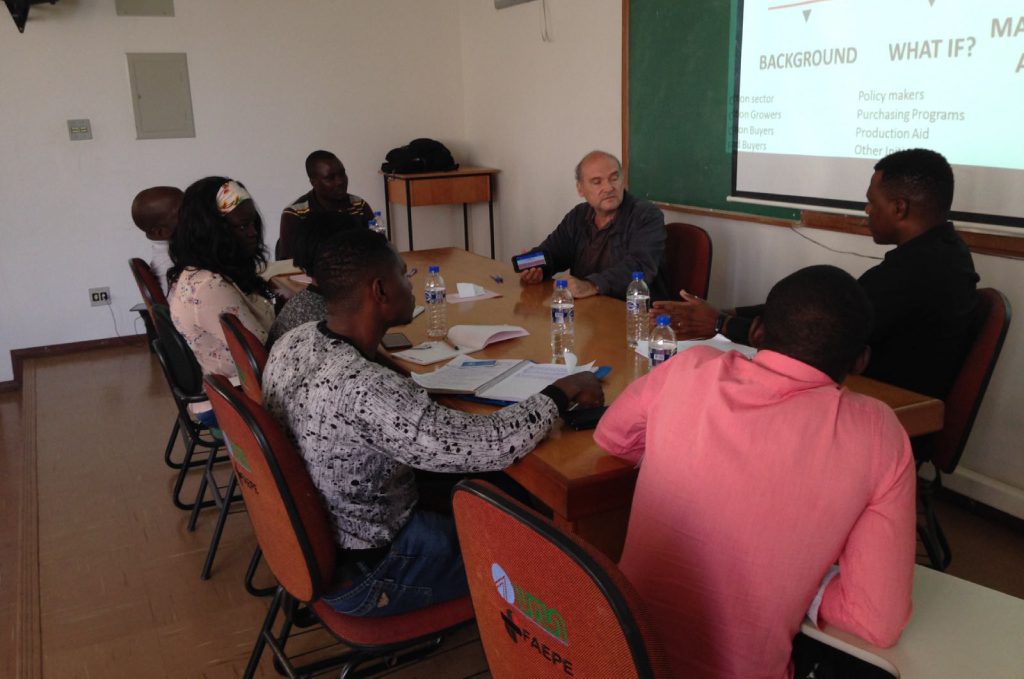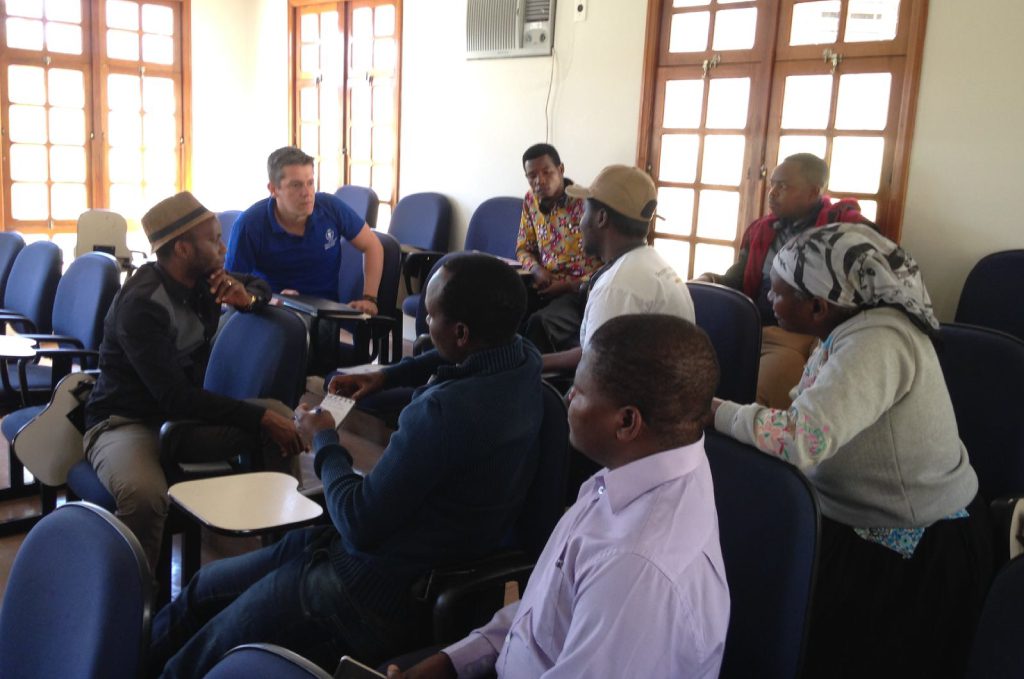
The WFP Centre for Excellence against Hunger undertook a mission to Lavras, in Minas Gerais state, Brazil, together with a team from the Brazilian Cooperation Agency (ABC), for a series of activities with representatives from Mozambique, Kenya and Tanzania, three of the four participating African countries of the Beyond Cotton project.
The technical staff from African countries are in Brazil for an exchange initiative that is part of the bilateral cooperation project Cotton Shire-Zambeze, conducted with the Federal University of Lavras. The WFP Centre of Excellence and ABC took advantage of their presence in Brazil to present the Beyond Cotton project to the representatives of the three countries and to carry out a first assessment on the local contexts of the cotton chain. The information gathered will compose the documents that will guide the activities of the project in each country.

Beyond Cotton
The Beyond Cotton project is an initiative of the WFP Centre of Excellence and ABC in partnership with the Brazilian Cotton Institute. The project will support cotton producers and public institutions in four African countries to commercialize cotton by-products such as oil and associated crops, such as corn, sorghum, and beans. The good practices identified in Brazil will be an inspiration for Benin, Mozambique, Kenya and Tanzania to develop their own solutions for the commercialization of smallholder farmers’ produce.
The mission to Lavras was an opportunity to exchange knowledge, methodologies and experience, both with the representatives of African countries and with the institutions involved in other cooperation projects between Brazil and Africa in the cotton area.
With the field visits and meetings held in Lavras, the team from the Beyond Cotton project was able to identify good practices in the cotton sector in the countries and identify the institutions and organizations involved in activities to support the development of the cotton sector, mainly related to the production flow.
The mission’s activities included surveying the cotton chain in Mozambique, Kenya and Tanzania, analysing the strengths, weaknesses, opportunities and threats of the cotton sector in each country, and discussing the potential scenarios for the commercialization of cotton by-products and of intercropped food items.

With this, the WFP Centre of Excellence, ABC, and country representatives kicked off the diagnostics of participating countries. Cotton, in general, is sold to cotton industries based on contracts established prior to planting, which gives farmers a guarantee. Food produced intercropped with cotton, in turn, can only be sold if there is surplus and in varied markets, such as fairs, highway sales, or through larger marketers.
The mission to Lavras was the first successful activity of exchange and collaboration between two modalities of cooperation, bilateral and trilateral. The two projects have complementary strategies. The bilateral project, Cotton Shire-Zambeze, aims to support countries in increasing cotton production, crop rotation, and the development of adapted agricultural technology and varieties. The trilateral project, Beyond Cotton, aims to support the commercialization of produce and new market opportunities for cotton and its by-products and intercropped food items.
As there were no representatives from Benin in Lavras, other actions are underway to prepare the country’s diagnosis, such as gathering information on the main institutions in the sector and hiring a national consultant.




